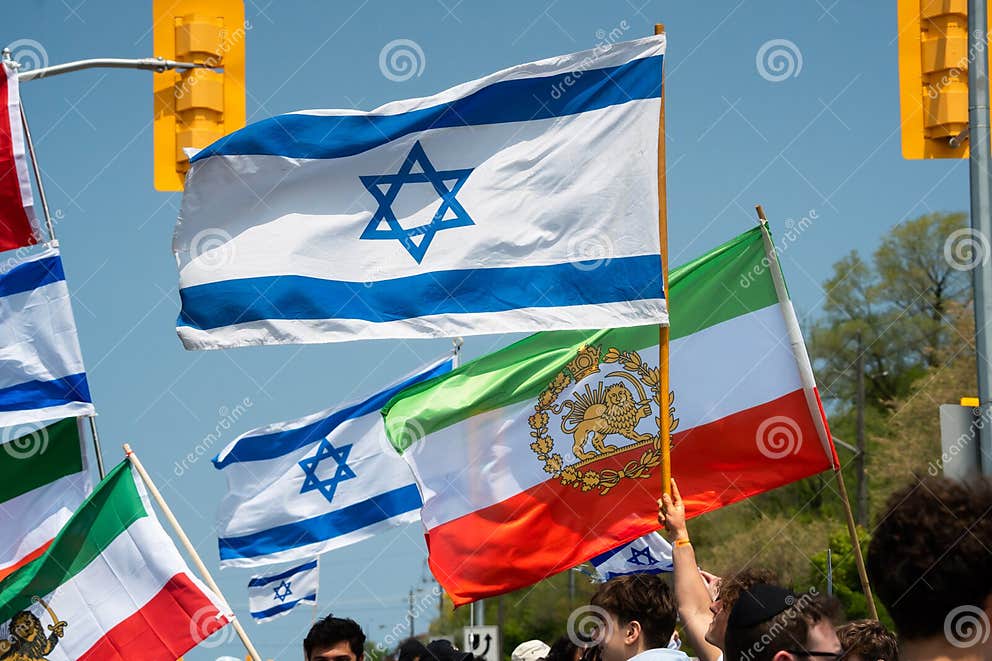Security and Military Issues: Iranian Israeli

The relationship between Iran and Israel is deeply intertwined with security and military concerns. Both nations possess significant military capabilities and have engaged in proxy conflicts, contributing to regional instability. Their divergent ideologies and historical tensions further complicate the situation. Understanding the military strategies, the role of proxy conflicts, and the implications of nuclear proliferation and missile development is crucial for grasping the complex dynamics of this relationship.
Military Capabilities and Strategies, Iranian israeli
Iran and Israel possess distinct military capabilities and strategies, reflecting their unique security environments and geopolitical ambitions.
- Iran: Iran’s military is the largest in the Middle East, boasting a vast conventional force and a robust paramilitary network. Its strategy emphasizes deterrence through a multi-layered defense system, including ballistic missiles, unmanned aerial vehicles (UAVs), and a formidable ground force. Iran’s Revolutionary Guards (IRGC) play a significant role in projecting power regionally, particularly through the use of proxy forces.
- Israel: Israel maintains a highly sophisticated and technologically advanced military, renowned for its intelligence capabilities, airpower, and cyberwarfare. Its strategy prioritizes preemptive strikes and a focus on high-tech warfare. Israel has a strong emphasis on defense, with a robust missile defense system and a history of successful military operations.
Proxy Conflicts and Regional Instability
Proxy conflicts, where states support non-state actors in conflict zones, have become a defining feature of the Iran-Israel rivalry.
- Iran: Iran has been accused of supporting various militant groups in the region, including Hezbollah in Lebanon, Hamas in Gaza, and Houthi rebels in Yemen. These groups serve as proxies for Iranian influence, allowing Tehran to exert pressure on Israel and its allies without direct military involvement.
- Israel: Israel has also been involved in proxy conflicts, supporting various armed groups in the region. For example, Israel is believed to have aided Kurdish forces in northern Iraq and Syrian rebels opposed to the Assad regime. These actions are often aimed at countering Iranian influence and securing Israel’s borders.
Nuclear Proliferation and Missile Development
Iran’s nuclear program and missile development have been major sources of tension with Israel.
- Nuclear Program: The potential for Iran to develop nuclear weapons has been a major concern for Israel, which views it as an existential threat. Israel has consistently opposed Iran’s nuclear ambitions and has not ruled out military action to prevent Iran from acquiring nuclear weapons.
- Missile Development: Iran’s ballistic missile program has also been a source of concern, with Israel fearing that Iran’s missiles could be used to target its territory. Iran has developed a range of missiles with increasing range and accuracy, capable of reaching Israel and other regional targets.
Iranian israeli – The complexities of the Iranian-Israeli relationship, like a tempestuous sea, are often marked by unpredictable shifts and tumultuous currents. Just as tropical storm Debby brought its fury to the coast, leaving a trail of destruction in its wake, so too have these two nations weathered storms of conflict and tension.
The legacy of this dynamic relationship, like the aftermath of a hurricane, will continue to shape the landscape of the Middle East for years to come.
The complex tapestry of Iranian-Israeli relations, woven with threads of history, politics, and cultural exchange, often finds itself at a crossroads. Just as a carefully placed eureka curvy chair w side table can provide a comfortable space for dialogue and understanding, so too can open communication and shared values bridge divides and foster a more harmonious future between these two nations.
